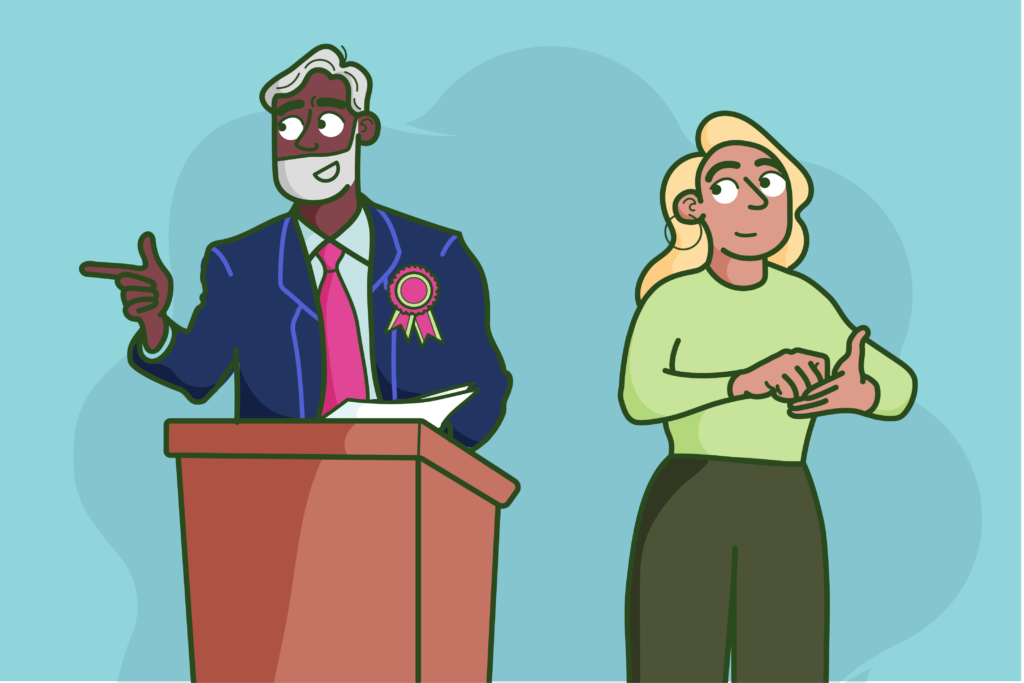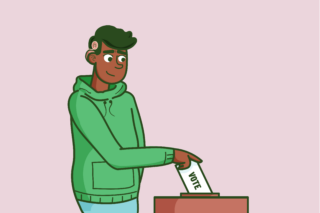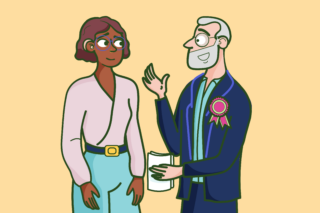Watch this page in BSL

In this general election, everyone should have their say – but voting isn’t always an accessible process for people who are deaf or have hearing loss.
The general election this summer is a moment of huge national importance. The results will massively impact our communities – that’s 18 million people. They have a right to have their voices heard and help shape their community and country.
Making this general election inclusive
From difficulties communicating at polling stations to inaccessible party information materials, we want to break every barrier that stops deaf people and people with hearing loss from voting. Here’s how you can prepare for the election on Thursday 4 July.
Sharing the needs of our communities
We know from recent research that our communities aren’t included in many aspects of public life.
67% of our communities say they have experienced negative public attitudes and this rises to 82% of deaf people and 90% of BSL users.
After the election, we’ll be calling on the Government to improve the lives of people who are deaf, have hearing loss or tinnitus through four key demands, which are summarised in our Loud and Clear charity manifesto.
Watch the manifesto summary in BSL
What we’re asking for
We’re demanding the next Government commits to improving the lives of our communities in these four essential ways:
Deaf BSL users are excluded from participating in public life and policy making processes due to a lack of accessible Government communications such as BSL translations and interpreters present for live speeches.
The Government must work with the deaf community to increase research and evidence into their experiences, improve processes through which policy decisions are made, and increase the inclusion of BSL users in public life.
Health and social care remains inaccessible for people who are deaf or have hearing loss.
The Government must make healthcare accessible by enforcing the implementation of the Accessible Information Standard (AIS) and ensuring all NHS staff are informed of their obligations.
People who are deaf or have hearing loss face barriers in the workplace.
The Government must help employers to assist employees who are deaf or have hearing loss, raise awareness of the Access to Work scheme, and help close the disability employment gap.
The Government must take urgent action to ensure that people can access NHS audiology services, including ear wax removal services, and increasing Government funding towards biomedical research for new treatments.

